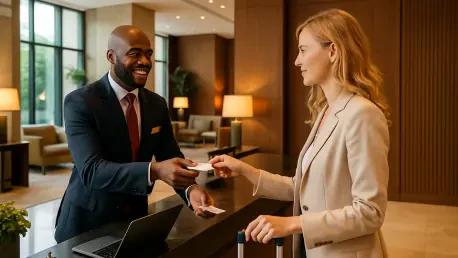I’m thrilled to sit down with Katarina Railko, a seasoned expert in hospitality with a remarkable background in travel and tourism. Katarina has honed her expertise in creating unforgettable guest experiences and is a prominent voice in entertainment and events, often speaking at expos and conferences. Today, we’ll dive into the exciting world of experiential travel, exploring how hotels use guest data to personalize stays, the importance of crafting unique and authentic experiences, and the value of local partnerships in building connections with communities.
How are hotels tapping into guest data to elevate the travel experience?
Hotels are really diving deep into guest data to understand what makes each person tick. They’re collecting info from emails, surveys, social media feedback, and even past stays to build detailed profiles. The key is to make sure this data isn’t just noise—it has to be actionable. For example, knowing a guest’s favorite type of cuisine or whether they travel for business or leisure allows hotels to anticipate needs and offer tailored suggestions, like a specific restaurant reservation or a room with a view. It’s all about turning raw information into meaningful insights that enhance the stay.
What role does personalization play in today’s hospitality landscape?
Personalization is everything right now. Guests don’t just want a room; they want an experience that feels like it was made just for them. When a hotel tailors a stay—whether it’s pre-booking a spa treatment based on past preferences or greeting someone with their favorite snack—it shows they’re paying attention. That kind of care boosts satisfaction and builds loyalty. Guests remember how they felt, not just what they paid for, and they’re more likely to return or recommend the hotel to others.
Can you share how hotels are creating truly unique experiences for their guests?
Unique experiences stand out because they’re not one-size-fits-all. Unlike standard packages, they’re customized to a guest’s desires. Think of a hotel arranging a private beach picnic for a couple celebrating an anniversary or sourcing a specific craft beer for a guest who mentioned it in passing. Hotels figure this out by analyzing data and engaging with guests before arrival to understand their interests. These thoughtful touches create memories that generic offerings can’t match, making the stay unforgettable.
In what ways can partnering with local businesses enrich a guest’s hotel experience?
Collaborating with local businesses is a win-win. For hotels, it adds a layer of authenticity and variety to what they can offer, like a guided tour with a local artisan or a fishing trip with a nearby fisherman. For the community, it brings in business and showcases the area’s culture. Guests benefit by feeling a deeper connection to the destination—they’re not just tourists, they’re part of the local story. These partnerships often turn a standard trip into something immersive and special.
Why is authenticity so critical when marketing hotel experiences to potential guests?
Authenticity in marketing means being real about what you’re offering. Guests can spot a fake promise a mile away, and it erodes trust. It’s about promoting experiences that genuinely reflect the hotel’s values and the destination’s vibe, whether that’s highlighting a cozy, family-run restaurant on-site or sharing honest details about a local excursion. Hotels can stay genuine by ensuring their messaging matches the actual experience and by training staff to communicate consistently. When it feels authentic, guests are more likely to believe in and book the experience.
How do hotels weigh the costs of personalized experiences against the benefits they provide?
Offering personalized touches often comes with extra costs—think staff time, custom amenities, or partnerships. But hotels look at the long game. If a personalized experience turns a one-time guest into a loyal customer or generates buzz through word-of-mouth, it’s worth the investment. They prioritize by focusing on high-impact, low-cost personalization first, like using existing data to suggest activities, and then scale up based on guest feedback. It’s a balance of immediate expense versus future revenue and reputation.
What’s your forecast for the future of experiential travel in the hospitality industry?
I see experiential travel only growing stronger. As technology advances, hotels will get even better at using data to predict and personalize guest needs before they even ask. I think we’ll see more seamless integrations with local cultures and communities, creating stays that feel like curated journeys rather than just a place to sleep. Sustainability will also play a bigger role—guests will want authentic experiences that respect and highlight the environment. Hotels that adapt to these shifts, focusing on genuine connections and tailored offerings, will lead the pack in a competitive market.









